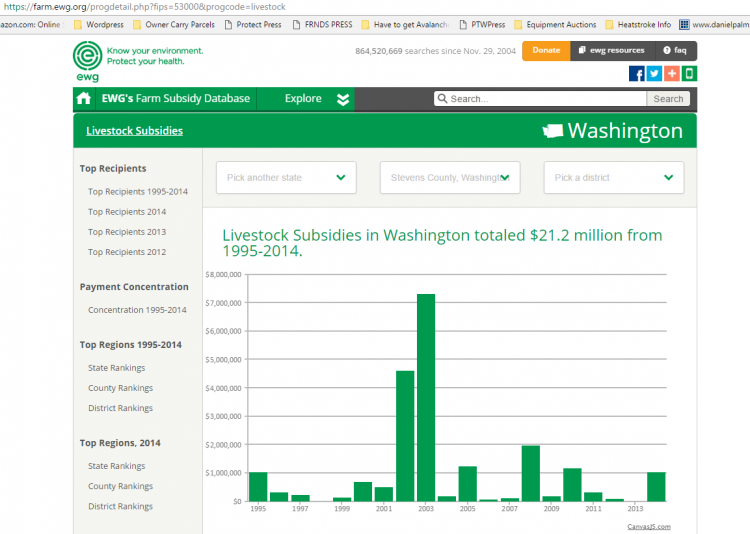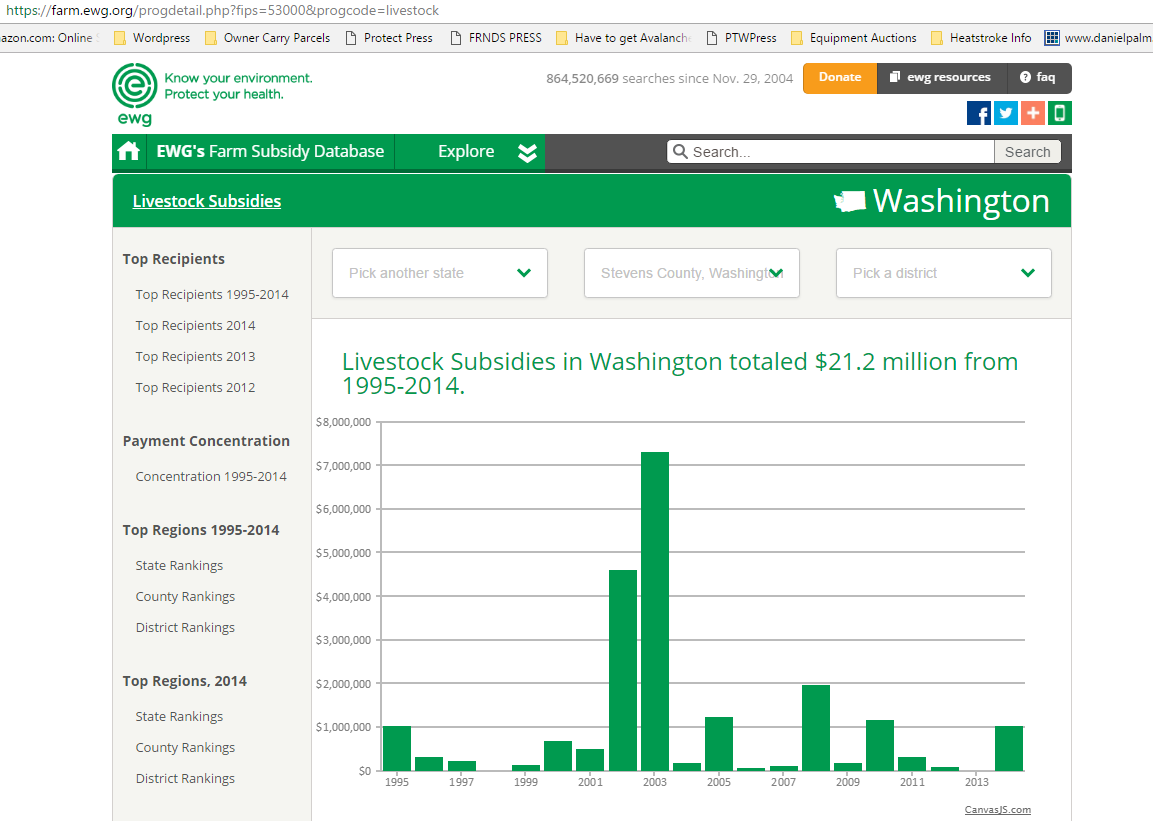
Protect The Wolves™ has to question how 1 little county (Stevens County Washington) can cost you the Taxpayer over $ 21,000,000 dollars in welfare rancher payments?
The Government doesnt have a welfare program for any other business…. WELFARE Rancher Payments need to stop period. If they cant be successful on their own….. why should you have to pay them to run their business?
In just 2 of those years alone….. McIvrin’s Diamond M Ranch cost you almost $250,000 for the slaughter of 2 separate wolf packs. Apparently WDFW only cares about managing our Resources for these special Interest Groups…. Were you aware that they are not supposed to have Special Interest Groups involved in Policy Change?
Were you aware that WDFW allows individuals elected to a State Office to participate in Policy Change? That is forbidden, under mandates upon them as Trustees. Further Ranchers like Joel Kretz, Donald Dashiell, Mike Blankenship, just to name a few…. are choosing the best path forward based on their personal interest it would appear….. (Cattle Ranchers, Elected Officials… whats wrong with that picture?) People that is what is referred to as a Conflict of Interest…. How long will the public continue to allow this to happen?
Conflict of interest Conflict of interest can be defined as a “situation where and individual or the entity for which they work, whether a government, business, media outlet or civil society organisation, is confronted with choosing between the duties and demands of their position and their own private interests” (Transparency International, 2009),. For instance, companies may face accusations of improper influence if they employ parliamentarians as consultants or have them on their board. Conflict of interest, thus, may arise ‘when an individual with a formal responsibility to serve the public participates in an activity that jeopardizes his or her professional judgement, objectivity, and independence’ (U4 Resources Centre, webpage). In this context, preventing conflict of interest is also important for enhancing transparency and accountability in public decision making. Regulations may take a number of forms, including laws, codes of conduct and internal rules or management guidelines. They should also cover post-public employment and establish mandatory ‘cooling-off’ period to avoid the revolving door, as enterprises and their consultants often use former public officials for lobbying purposes (Transparency International, 2010). Three main types of conflict of interest regulation can be identified: prohibitions on activities, declarations of interests, and exclusion from decision-making processes (Reed, 2008)
